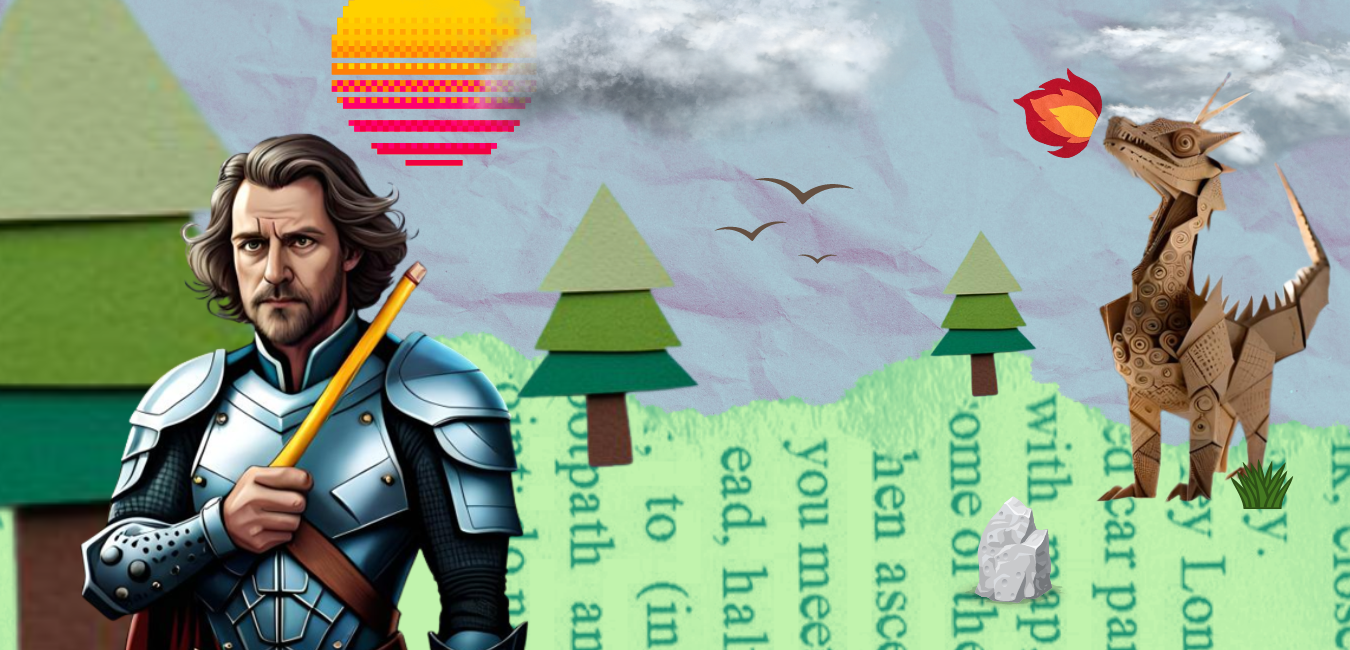|
"STUDY GUIDE" FOR THE WORLD HISTORY PART ONE EXAM
"You ain't got much, but it's all you got!" College classrooms can be like an unruly beast, overflowing with information and causing you some serious heartburn. And boy, do I know the pain of a professor who declares, "the whole shebang is fair game for the midterm/final." That's why I whipped up this page for you, so you can take a more surgical approach to your studying. As far as the mechanics of the midterm:
Topic 1: Mesopotamia Mesopotamia, that fabled land in the heart of the ancient world, is often called the cradle of civilization. It was one of the first places on Earth where people began living in cities and creating complex societies. By peering back into the origins of human civilization, we can gain a deeper understanding of our society and how we arrived at this point. The ancient Mesopotamians were no mere spectators in the grand march of human history. Their contributions to human development were immense. They were the ones who first invented writing, the wheel, irrigation systems, and a host of other technologies that have had an indelible impact on the course of human history. These innovations allowed people to organize themselves and build more complex societies, leading to agriculture, trade, and architecture advancements. But it wasn't just technology that the ancient Mesopotamians gave us. Their rich cultural heritage has influenced countless aspects of modern society. Their ideas have inspired artists and writers from art to literature, mythology to religion. Even the principles of government and law that govern many modern societies have roots that can be traced back to ancient Mesopotamia. Yet, as with any civilization that has flourished and faded, the legacy of Mesopotamia is not without its complexities. Its contributions to human development starkly contrast with the modern-day conflicts that plague the Middle East, rooted in the ancient world. Studying this civilization can help provide insight into the historical and cultural factors contributing to the region's current turmoil. In the end, the study of ancient Mesopotamia has a vital role in understanding the origins of human civilization, the development of human society, and the cultural heritage that has shaped modern-day society. It is through such understanding that we can gain a better grasp of ourselves and the world around us. IN OTHER WORDS: Mesopotamia was a significant civilization and is considered the cradle of civilization due to its contributions to human development, including inventing technologies like writing, the wheel, and irrigation systems. Studying ancient Mesopotamia's cultural heritage and historical factors contributing to the region's current conflicts provides insight into the origins of human civilization and modern-day society. Topic 2: The Roman Empire Ah, ancient Rome - a powerhouse of politics, law, language, architecture, and engineering. This grand civilization played a pivotal role in shaping our modern world as we know it. By delving into the history of Rome, we can unravel the roots of Western civilization and how it has evolved. But it's not just about looking back - the issues that ancient Rome faced still resonate in today's society. Political corruption, economic inequality, and military conflict continue to plague us. By studying the triumphs and tragedies of Rome, we can glean valuable lessons that can guide us in our decisions and actions today. Yet, beyond the practicality of learning from the past, Rome left a rich cultural legacy behind. Art, literature, philosophy, and religion all bear the marks of this great civilization. By studying their culture, we can better appreciate our shared human heritage and the diversity of human experience. And let's remember the sheer joy of the intellectual pursuit itself. Studying ancient Rome requires critical thinking, analysis, and interpretation of historical evidence - special skills for various academic and professional goals. IN OTHER WORDS: Ancient Rome's legacy continues to influence modern society with lessons on political corruption, economic inequality, and military conflict. At the same time, its cultural contributions to art, literature, philosophy, and religion offer valuable insights into our shared human heritage and intellectual pursuit. Topic 3: The Church and the Middle Ages The medieval times were steeped in religion, ruling the roost of every aspect of life - politics, culture, and social norms alike. If we grasp this period's essence, we must fathom how religion played the piper, leading society and its institutions to dance. Although Christianity hogged the limelight in those days, other faiths and religious practices shared the stage. Examining religion during medieval times allows us to appreciate the multitudinous religious beliefs and practices that coexisted back then. The era bore witness to the ascent of powerful religious institutions like the Catholic Church, a prominent player in shaping European history. Through scrutinizing religion during this period, we can retrace the steps of these institutions and grasp how they became so almighty. The impact of religion on art and literature cannot be ignored either: religion was a recurring motif in medieval art and literature, influencing artistic expression and the creation of literary works. On the whole, studying religion during the medieval era holds tremendous significance in comprehending the history and culture of that time. It gives us a peek into how faith shaped society, politics, culture, and art during this period. IN OTHER WORDS: Religion played a dominant role in medieval times, impacting all aspects of life, including politics, culture, and social norms, with Christianity taking the lead, but other religions and practices also present, and by examining religion during this period, we can understand the rise of powerful institutions like the Catholic Church, as well as the influence of religion on art and literature. Topic 4: The Black Death Picture this, my friends: the Black Death, also known as the Bubonic Plague, swept through medieval Europe like a hellish wildfire, leaving a trail of death and destruction. The sheer magnitude of its destructive power is mind-boggling, with millions of people falling victim to its merciless grip during the 14th century. But don't let the tragic consequences of the disease overshadow the valuable insights that are studying the Black Death can provide. This pandemic had a profound impact on the course of history, altering the time's social, economic, and political structures like a raging hurricane. By studying the Black Death, we can unlock the secrets of how this pandemic affected the people of that era and how it shaped our world today. The Black Death is a beast scrutinized by researchers more than any other pandemic in history, leading to significant advancements in our understanding of the disease and its effects on the human body. This knowledge can help medical professionals gain invaluable insights into infectious diseases and how to prevent and treat them. But the impact of the Black Death went far beyond the realm of medicine. It inflicted significant social and cultural changes, causing shifts in religious practices, labor systems, and attitudes toward death and disease. By studying the Black Death, we can better understand how societies respond to pandemics and other public health crises. Moreover, we can arm ourselves with the knowledge needed to prepare for future outbreaks by studying past pandemics, such as the Black Death. Understanding how pandemics spread and the impact they can have on society allows us to take proactive measures to prevent and mitigate their effects. IN OTHER WORDS: The Black Death, a deadly pandemic that ravaged medieval Europe, profoundly impacted history and provided valuable insights into infectious diseases, societal responses to pandemics, and proactive measures to prevent and mitigate their effects.
Need some help when it comes to studying or getting your head around slayin' the ol' exam dragon? Hopefully these videos can help!
0 Comments
Leave a Reply. |
AuthorRyan Lancaster wears many hats. Dive into his website to learn about history, sports, and more! Archives
April 2024
Categories |




 RSS Feed
RSS Feed